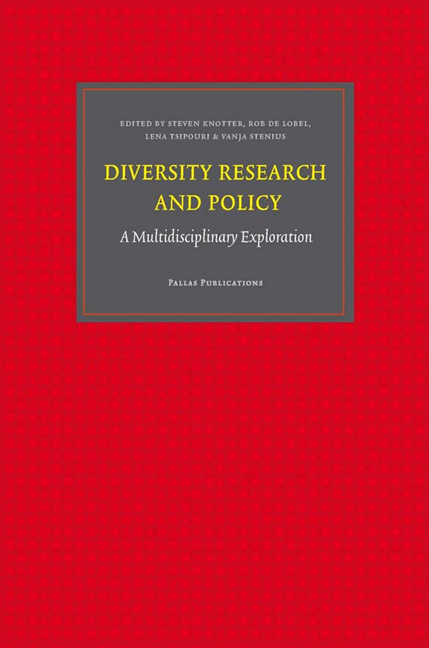Book contents
- Frontmatter
- Contents
- Acknowledgements
- 1 An Introduction
- 2 Diversity and Social Anthropology
- 3 Diversity and Sociology
- 4 Diversity and Criminology
- 5 Diversity and Ecology/Ecological Economics
- 6 Linguistic Diversity
- 7 Diversity and Architecture
- 8 Diversity and Urban Planning
- 9 Diversity and Economics
- 10 Diversity and Diversity Management in Business and Organisation Studies
- 11 Diversity and (Organisational) Psychology
- 12 Diversity and Law
- 13 Diversity and Public Policy
- 14 Conclusion
- About the Authors
- About the Reviewers
4 - Diversity and Criminology
Published online by Cambridge University Press: 15 January 2021
- Frontmatter
- Contents
- Acknowledgements
- 1 An Introduction
- 2 Diversity and Social Anthropology
- 3 Diversity and Sociology
- 4 Diversity and Criminology
- 5 Diversity and Ecology/Ecological Economics
- 6 Linguistic Diversity
- 7 Diversity and Architecture
- 8 Diversity and Urban Planning
- 9 Diversity and Economics
- 10 Diversity and Diversity Management in Business and Organisation Studies
- 11 Diversity and (Organisational) Psychology
- 12 Diversity and Law
- 13 Diversity and Public Policy
- 14 Conclusion
- About the Authors
- About the Reviewers
Summary
A Brief Description of the Discipline of Criminology
Criminology is a relatively new discipline that has emerged in the past half-century as a multi-disciplinary outgrowth of sociology that incorporates law and psychology, as well as other disciplines. Criminology primarily concerns itself with the study of the etiology, causes, prevention, and control of crime, exploring crime both at the individual level as well as at the broader social level. As such, crime and its causes are understood both in terms of individual characteristics and the context (familial, social, political, economic) in which crime takes place. The discipline also includes criminal justice, or the study of the system and responses to crime as opposed to what may be referred to as pure criminology, which focuses on the causes. Both of these aspects are generally included when one speaks of criminology today as a discipline.
The Meaning and Categorisation of Diversity in Criminology
Diversity, as a distinct concept, is not inherent to the study of criminology and rarely discussed. In fact, the use of the term “diversity” is rarely used, especially in the American context, which is responsible for the vast majority of criminological research and advances in theory in which criminology is recognised as an independent discipline. Despite this lack of specific focus, the idea of diversity is fundamental to the discipline in that individual, familial, social, political, economic, and other differences provide explanations not only for why people commit crime, but also for what constitutes a crime. This latter consideration is important in that criminology is based on the occurrence of a phenomenon that is defined within a community or society. A behaviour or act (or failure to do something) does not constitute a crime until it is defined as such within the law and punishable in accordance with the law. This means that diversity in culture and social conditions may lead to markedly different laws and hence different notions of what is and is not a crime.
It should be noted that diversity is often seen as a cause of crime. The notion that individual and social differences contribute to crime is not new, but can be found in the writings of Émile Durkheim (1982) who argued that deviance and deviants are essential for the healthy functioning of a society.
- Type
- Chapter
- Information
- Diversity Research and PolicyA Multidisciplinary Exploration, pp. 57 - 72Publisher: Amsterdam University PressPrint publication year: 2012

